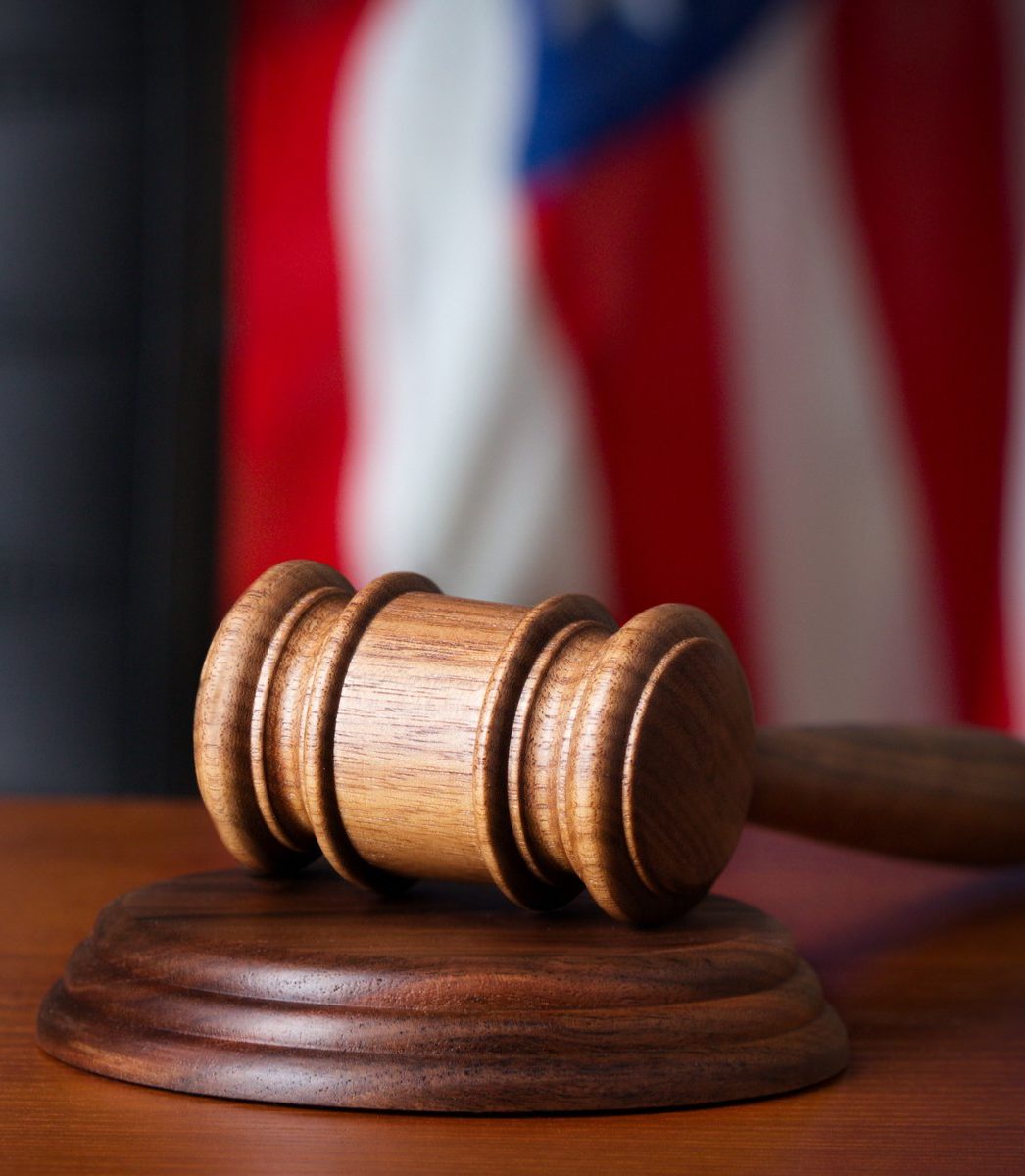
CIVIL CASES
A civil case usually involves a claim for money, or damages or some kind of claim with respect to a contract or to property. The party initiating the cause is called the plaintiff and they set forth a claim in a complaint or petition. The defendant, the person who is being sued, files an answer, admitting or denying the claims made in the complaint and stating any special defenses he or she may have. the defendant may make a claim of his or her own against the plaintiff. This is called a cross-complaint. There may be more than one plaintiff or defendant in a civil case.
CRIMINAL CASES
In a criminal case, a defendant is charged with a public offense by the community at large in the name of the People of the State of California. A criminal case is initiated by the filing of a complaint or an indictment. A complaint is a document filed by the prosecuting attorney charging that a person has committed a specific offense. An indictment is a written accusation presented upon oath by a grand jury that a person has committed a crime. When a defendant enters a plea of not guilty, the case proceeds to trial.
Types of Crime
FELONIES
These crimes carry a punishment of imprisonment in a state prison.
MISDEMEANORS
These crimes carry a punishment of a fine and/or imprisonment somewhere other than a state prison, generally in the county jail.
INFRACTIONS
These are crimes that violate a statute that only allows punishment fo be in the form of a fine.
How does a criminal trial work?
The criminal court process generally takes between three and four months to complete from the time the defendant is arrested to final sentencing. A criminal case begins when a person is arrested. Our office files formal charges after reviewing the police report, or a grand jury issues an indictment.
1
ARRAIGNMENT
A person who has been arrested and is being held in custody has a right to an arraignment within 48 hours of being arrested. The defendant is brought before the court to plead to the criminal charges in the complaint. The defendant is told what crime he or she has been charged with and is asked to plead “guilty” or “not guilty” or, in certain situations, the defendant may plead “no contest” to the charges.
2
PRELIMINARY HEARING
After the arraignment, if the defendant has plead not guilty to a felony offense, a preliminary hearing is held. At this hearing the prosecutor must produce evidence to show that it is more likely than not that a crime has been committed and that the defendant committed the crime. If the judge decides that the district attorney did show enough evidence, the defendant is arraigned a second time where the defendant will be formally charged again, rights will be explained, and a plea will be made.
3
TRIAL SETTING & MOTIONS
Next, a trial date is set. In some cases, the attorneys file motions to the court. A motion is a request made to the judge by the prosecution or the defense which asks for a certain order, ruling, or direction. The judge selects a date by which all motions are to be filed with the court. After all motions have been made and ruled on by the judge, the trial date is set at the second arraignment.
4
JURY SELECTION
The trial begins with a selection of twelve jurors along with alternate jurors. The Office of the District Attorney thanks those who serve in this important constitutional role. Learn more about what to expect when you serve on a jury by downloading the California Court’s brochure on jury service below.
5
OPENING STATEMENTS
Next, attorneys give their opening statements. Opening statements are summaries made to the jury which outline what the attorneys expect to prove with the evidence they have.
6
EVIDENCE & WITNESSES
Evidence is then presented by the prosecutor and then by the attorney representing the defendant. Evidence can consist of pictures, objects, documents, or sworn testimony by witnesses. The evidence presented at trial must either prove or disprove a question in the case. If it does not, the evidence is not relevant to the case and the jury is not allowed to consider it when determining whether the defendant is guilty or not guilty.
7
CLOSING ARGUMENTS
After both sides have presented their evidence, the attorneys give their closing arguments. Each attorney analyzes and interprets the evidence he or she has presented. The jury is then instructed by the judge about the law that applies to the case. The jury then moves to the jury room to reach a verdict.
8
JURY DELIBERATION & REACHING A VERDICT
If the jury reaches a guilty verdict in a felony case, the judge will order a probation report and schedule a sentencing hearing. A misdemeanor can be sentenced immediately.
9
SENTENCING
State and local laws determine the defendant’s punishment. The maximum sentence for an infraction is a fine; for a misdemeanor it is a fine and/or up to one year in county jail; and for a felony it is time in a state prison or, for some murders, death.
THE “BLUE RIBBON” GRAND JURY
The Tulare County Grand Jury serves a significant function for Tulare County citizens. It is composed of nineteen Tulare County residents. The jury is empowered by law to examine various aspects of county government, ensuring that the county is being governed honestly and efficiently, and that county money is being handled judiciously.
This standing grand jury is separate from an independent criminal grand jury that may be called upon as needed.
Full grand jury business meetings are held at least twice a month and many additional committee meetings are conducted regularly to investigate the proper functioning of county government. This is accomplished by meeting with county officials, visiting county facilities, conducting independent research and reaching conclusions through group discussions. These conclusions are developed into recommendations for improvement and are presented to the County Board of Supervisors.
A grand jury member is paid $10 for each day served and receives mileage reimbursements for travel expenses in the county. Any private citizen, county official, or county employee may present complaints to the grand jury. An initial complaint may be made by telephoning the Grand Jury Office at 733-6465 or by correspondence addressed to the Tulare County Grand Jury, Courthouse, Visalia, CA 93291.
After a telephone conversation, a complaint form is sent to the person seeking assistance and must be returned immediately containing his/her complaint. A citizen may also submit a written complaint to the Tulare County Grand Jury. All complaints or suggestions will be held in strict confidence and the citizen will be notified of the action taken.
CRIMINAL INDICTMENTS
Criminal indictments are handed out by a special criminal grand jury. At the request of the District Attorney’s Office, the presiding judge of the Tulare County Trial Courts selects persons, at random, from the list of trial jurors in civil and criminal cases and impanels a special grand jury to decide whether or not a criminal indictment should be brought against the person in question. The special criminal grand jury is dismissed after it reaches a decision in the matter.
DRUG COURT (ADULT)
Participants are referred to the Adult Drug Court Program by a probation officer, who interviews prospective participants to review their compatibility with the objectives of the Drug Court program, as well as to determine their suitability for participation. The length of the program is a minimum of one year, with the last six months to be completed while “clean and sober” in non-residential treatment. Upon acceptance into Drug Court, participants enter into a multi-phase program which requires regular appearances in court where each participant’s progress is examined. The program places a heavy emphasis on participating in the 12-Step recovery process as utilized in Narcotic’s Anonymous and Alcoholic’s Anonymous. Each participant is required to attend weekly meetings and to obtain a “sponsor,” and work on the steps of recovery as they advance through the Drug Court program.
In addition, all participants in Adult Drug Court are required to phone their assigned treatment provider daily and submit to random testing a minimum of once per week. Treatment providers coordinate their efforts with the various private and public agencies equipped to assist Drug Court participants in the areas of parenting, life skills, housing, job search techniques, transportation to meetings, and mental health.
It is the goal of the program that participants develop the skills and support they need to maintain their sobriety following their graduation from Drug Court and that they reduce their dependency upon the treatment provider.
DRUG COURT (JUVENILE)
Juvenile Drug Court is a 9-month program. Participants are referred to the Juvenile Drug Court by a Tulare County trial court because they have either been arrested or cited for a drug or alcohol-related incident. The offense can be for any criminal drug or alcohol related incident. After a juvenile is referred to the drug court an evaluation is completed to determine whether he/she is eligible for the program. A recommendation is made to the trial court and the judge makes the final decision on whether or not the juvenile is a proper candidate for drug court.
To graduate from the Juvenile Drug Court, participants must make bi-weekly appearances in court, participate in a points program, and stay in school. Points are earned for completing school reports, receiving favorable reports from school counselors, participating in a twelve-step program at least once a week, and by keeping and writing in a personal journal. The Juvenile Drug Court stresses accountability and responsibility for each participant’s actions and the consequences of those actions.
SMALL CLAIMS COURT
The Small Claims Court is a special court where disputes are resolved inexpensively and quickly. The hearing is informal. Lawyers are not allowed. You represent yourself. Claims are limited to disputes of up to $5,000.
VETERANS COURT
Established in 2010, the mission of the Tulare County Veterans Court is to provide veterans in the criminal justice system who suffer from Post Traumatic Stress Disorder (PTSD), substance abuse, or psychological problems stemming from service in a combat theater in the United States military, with intensive treatment programs tailored to meet clinically identified needs. Veterans Court is a collaboration between numerous agencies: the Court, the Veterans Center, the Veterans Counseling Clinic, the District Attorney’s Office, the Probation Department, and many other community partners.
Tulare County Court Contact Information
JURY DUTY
Juror service is administered by the Tulare County Superior Court. For questions, contact:
VISALIA – (559) 730-5100
PORTERVILLE – (559) 782-3800
